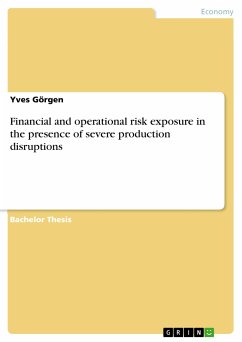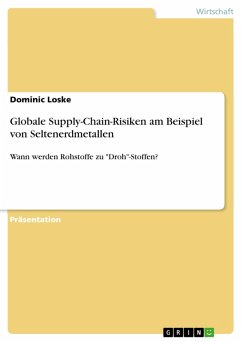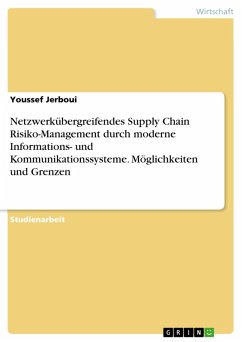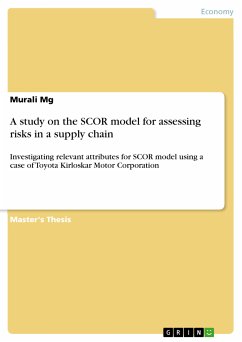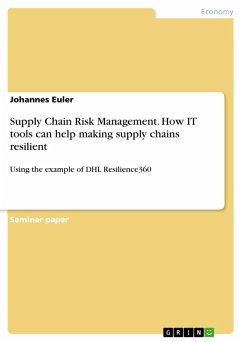Bachelor Thesis from the year 2020 in the subject Business economics - Supply, Production, Logistics, grade: 1,0, Frankfurt School of Finance & Management, language: English, abstract: Driven by the case of a pharmaceutical company, this thesis examines the effect of severe production process disruptions over the market cycle of a high-margin product. Using Monte Carlo simulation, the financial, as well as operational risks and performance implications, are quantified under various scenarios. Thereby, the model includes the possibility of repeated disruptions based on stochastic occurrences and the resulting short and long-term consequences due to the availability of substitutes. Besides, the study evaluates appropriate risk management strategies based on safety stock policies and different risk preferences of the decision-maker. The results indicate rather moderate implications on expected profits due to production disruptions but a substantial impact on the downside risk for a firm. The optimal inventory policy depends significantly on the disruptions parameters, characteristics of the firm and risk appetite of the decision-maker and cannot be generalized. In case of a highly profitable product, conservative inventory policies are advantageous, as they do not only mitigate risks but also lead in most scenarios to a higher expected profit than lean policies.
Dieser Download kann aus rechtlichen Gründen nur mit Rechnungsadresse in A, B, BG, CY, CZ, D, DK, EW, E, FIN, F, GR, HR, H, IRL, I, LT, L, LR, M, NL, PL, P, R, S, SLO, SK ausgeliefert werden.

